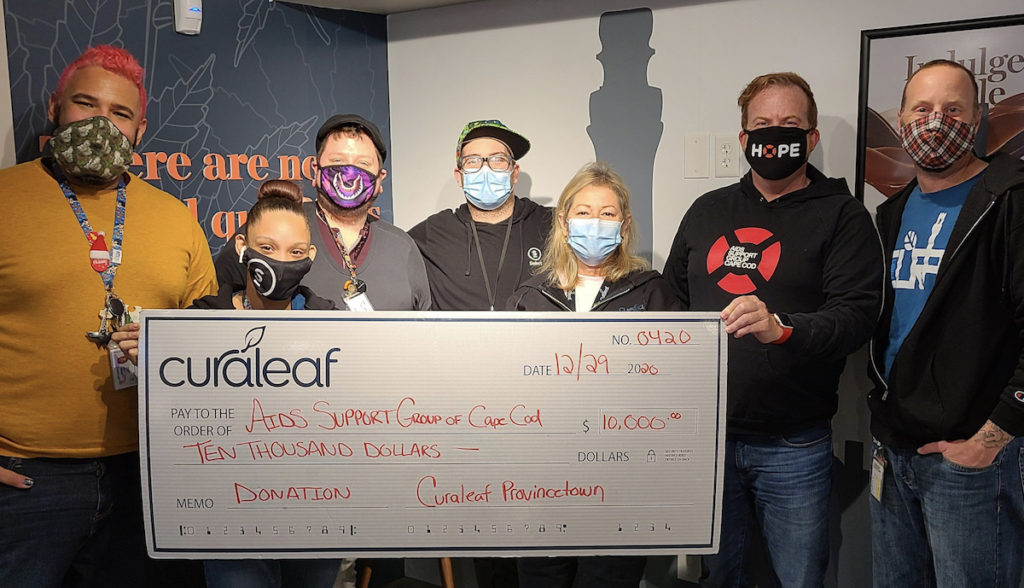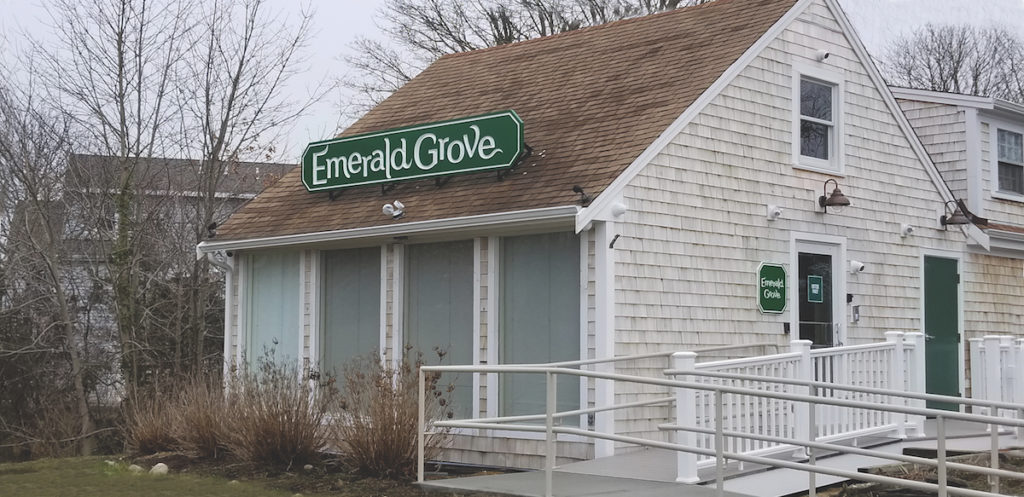PROVINCETOWN — What used to be five marijuana dispensaries in Provincetown is now just four. Heal Provincetown, which was originally planned as a medical cannabis dispensary on Harry Kemp Road but later opened as a recreational or “adult-use” dispensary at 48 Shank Painter Road, next to Stop & Shop, is now closed for good.

Patricia Faass, president of Heal Inc., confirmed that the company has returned its license for the Provincetown store to the state’s Cannabis Control Commission (CCC).
Faass declined to answer further questions about the closure. Heal Inc.’s parent company, Taj Green LLC, still owns a dispensary in Sturbridge and is developing a cultivation facility in Warren.
Linda Fiorella, the town’s licensing agent, confirmed the closure to the licensing board at its Feb. 28 meeting.
“At the end of January, we became aware that one of the marijuana establishments in town had posted a sign, and had something on their website, that said, ‘See you in April,’ ” Fiorella told the board.
All of the host community agreements that Provincetown signed with cannabis dispensaries, however, require them to be open year-round — which is defined in the agreements as at least four hours per day, four days per week, with “an exception for a once-a-year break in operation not to exceed 30 days.”
“If you’re closed at the end of January until even April 1, that’s more than 30 days,” Fiorella told the board.
She wrote a letter to Faass on Feb. 7, ordering Heal to comply with its agreement. “Barring express permission from the select board you will be required to open … ‘Four hours a day, four days per week.’ ” Fiorella wrote. Violations would result in fines beginning at $100 per day and escalating to $300 per day, with each day being a separate offense.
On Feb. 20, Heal’s board sent a letter back to Fiorella. (The members did not sign their names, but current filings with the secretary of state show that the directors are Faass, Alexander Oliphant, Gary Einsidler, and Jay Zimmerman.)
“On Jan. 27, 2023 Heal Provincetown was forced to close temporarily as we had no staff left in our employ who were trained and registered to open and close our dispensary,” the board wrote. “As you are well aware, staffing and the lack of people who want to work is an ongoing issue for many local businesses in Provincetown.”
Store manager, assistant manager, and shift lead positions were all vacant, the directors wrote, and the CCC has lengthy requirements for the vetting and training of new hires for those jobs.
“To handicap our business after 30 days with the fines outlined in your letter is unrealistic given a staffing situation that is beyond our control,” the directors wrote. “Based on the daily fine outlined in your letter, you have left us no choice but to shutter the business permanently.”
On Feb. 22, Fiorella sent a second letter, almost identical to the first, with an additional note that fines would begin on March 1 if the business was not open by then.
On Feb. 23, the Heal directors wrote back: “It is unfortunate that the town is not willing to work with us while we manage through a situation that is beyond our control.” They said they had notified the CCC that, effective Feb. 23, “we were surrendering our adult-use license and have closed our business in Provincetown.”
Heal Inc. started as a nonprofit in 2015, then converted into a for-profit before signing its host community agreement with Provincetown in October 2018. It took another three years to secure a license from the CCC. The store opened in October 2021 and was open for about 15 months.
A Competitive Business
Both town-by-town sales figures and the testimony of owners show that retail marijuana has been a competitive business here.
Until the summer of 2022, individual dispensaries all paid 3 percent of their gross sales directly to town governments as “host community impact fees,” which were meant to defray extra costs those governments might face as a result of the recreational marijuana industry. The state legislature invalidated those community impact fees last July, saying that towns already receive a 3 percent tax on marijuana sales and the 3 percent “host community fees” were unnecessary.
Nonetheless, those added fees help trace the fortunes of individual stores on the Outer Cape.
Curaleaf, at 170 Commercial St. in Provincetown, was the first cannabis dispensary to open on Cape Cod. During its first fiscal year, which ran from July 2020 to June 2021, Curaleaf gave Provincetown $249,000 in host community fees, which corresponds to total sales of around $8.3 million.
That number fell significantly as other stores opened in Provincetown, Wellfleet, and Eastham. Curaleaf’s last four quarterly impact fees to the town totaled $113,000, which corresponds to about $3.8 million in annual sales.
Eastham, meanwhile, has benefited from its location closer to the customers of the Mid Cape. Emerald Grove was the first dispensary to open there, in May 2021. In the fiscal year that followed (July 2021 to June 2022), Emerald Grove paid Eastham $199,600 in host fees, corresponding to $6.6 million in sales.

Salty Farmers got a later start, opening in August 2021, and had sales of about $2 million that fiscal year. Piping Plover and Cape Cod Cannabis, both in Wellfleet, sold about $3 million each.
The boom times that first came to Curaleaf and later to Emerald Grove could soon be felt beyond the rotary. There are two stores planned in Orleans and one in Brewster. Chris Taloumis, owner of the Haven dispensary on Lopes Square in Provincetown, said he hopes to have his Brewster store open by the summer.
And by this time next year, the rules for “social use,” also known as pot cafés, should have been developed, according to Dave DeWitt, a director of the advocacy group Cannabis on Cape Cod and a member of the High Dunes Craft Cooperative in Truro.
“People are definitely interested,” DeWitt said, “especially because it doesn’t take the capital investment of a big cultivation facility. The cost to get into the game is going to be a lot less.”
Provincetown at one point was one of 12 “pilot communities” for social use, DeWitt said, although the CCC appears to now be taking a statewide approach with an emphasis on access for smaller players.
Within about a year, in other words, the battle of the pot shops could be supplanted by a different scramble for the prime pot café location.




